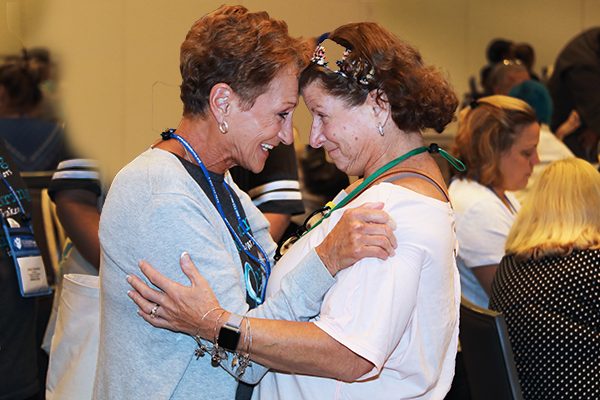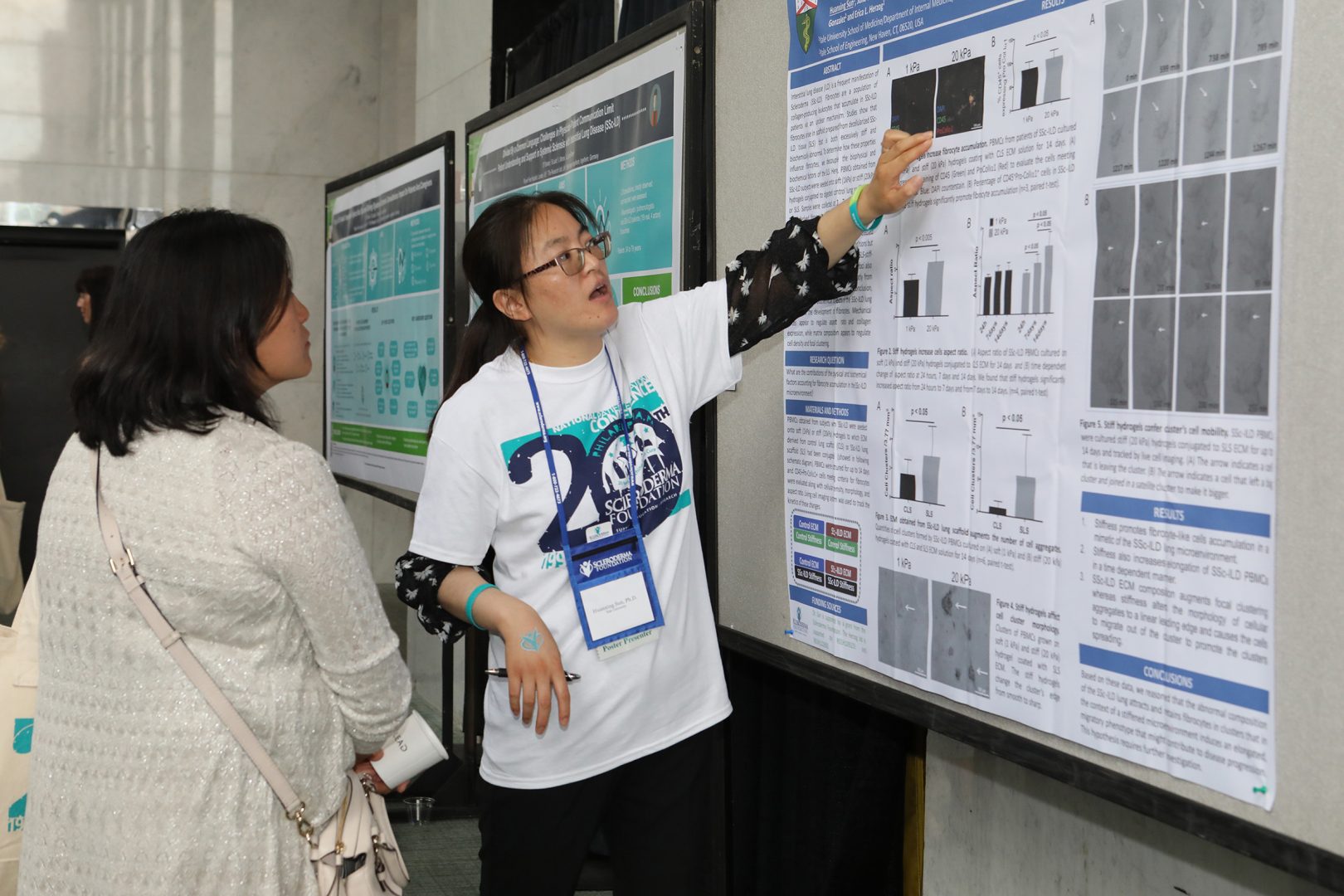Caregivers and Friends
If you’re a family member or friend of someone who has been diagnosed with scleroderma, you most likely have a lot of questions about this complex disease. While a scleroderma diagnosis can be very overwhelming for both the individual and their family and friends, the National Scleroderma Foundation can help you find you find your best path forward.
Learn
Learning about scleroderma, its different forms and symptoms, the process of diagnosis, and the available treatments, is a meaningful action for caregivers and friends. Understanding the disease and its impact can help you cope as it helps you help your loved one with scleroderma.
This website is an extensive resource for learning about scleroderma. You may also contact the Foundation office to seek information and resources that pertain to your circumstances.
Connect
Connecting with others is beneficial for many reasons. Mutual support is an immediate benefit, which is very important when dealing with a rare disease and the feeling of isolation. For those dealing with a new diagnosis, connecting with others also gives you a chance to learn how others cope with caring for a loved one who has disease. Their example can give you things to do to make a difference, and it can help just knowing that others have travelled the same path and found a way forward.
Self-Care
Caregivers typically put themselves last when it comes to taking care of needs. Compassion and empathy are essential to being an effective caregiver, but so is self-care. You can’t help anyone if you’re falling apart. Take the time to take care of yourself, and the person you provide care to will benefit even more because you’re operating in a good space.
There are many organizations who can help in this regard:
- Caregiver Action Network https://www.caregiveraction.org/
- The National Alliance for Caregiving https://www.caregiving.org/
Advocate
It’s very helpful to a person with scleroderma to have an advocate by their side during doctor’s visits and other medical appointments. You can discuss the information shared during an appointment, remind each other of questions to ask and symptoms to discuss. The advocate can often have more strength to ask for help in areas that might not be a priority for the medical staff, but are a problem in everyday life. It’s equally important to be a self-advocate with your own health.
Engage
This website provides a broad range of in-depth information to help you work with doctors and health care team for the best possible care.
As a family member or friend, you may also fill the role of caregiver. You will also find this website to be a great resource for information to help you be a more effective partner and assistant.
Whether someone with SSc or a loved one of someone with SSc, together we live with changing dynamics that influence our physical and emotional health. Despite these challenges, we aspire to be our best selves for our loved ones. This session, for patients and loved ones, presents current research on chronic illness burden for patients and family members (caregivers), highlighting interventions that can help families develop strategies to protect each other’s physical and emotional health.
People with scleroderma and their caregivers can help advance scleroderma research in many ways, from answering online surveys to partnering with researchers to design a study. This session will address some basic questions you might have about getting involved in research, including: who can get involved in research, why get involved with research, and how can I get involved?
Advocacy for Youth with Scleroderma – Sneha Dave, Health Advocacy Summit, This is a discussion heavy workshop on advocating for yourself as a youth. You can connect your peers and learn ways to become a stronger advocate for yourself and others in different situations.
Navigating Chronic Illness: A Parent’s Perspective – Sneha Dave – As you see your child slapped with chronic illness, life takes a new turn. New challenges set in. Lessons learned. A parent’s perspective.
How to be an Effective School Advocate for a Child with Scleroderma, Marybeth Medolla, RN – Advocating for your child in school is our responsibility as well as theirs. The school community can be a tremendous support system for your child. Services and help are available! You are not alone on this journey.
Watch the following video recordings of presentations in support of caregivers to people with scleroderma.
Compassion Fatigue: Avoiding Burnout as a Caregiver- Sean Burlile, Ph.D.- 2017
2015 Nashville- Don’t Ignore Your Check Engine Light! – Ginny Maril, Ph.D.


